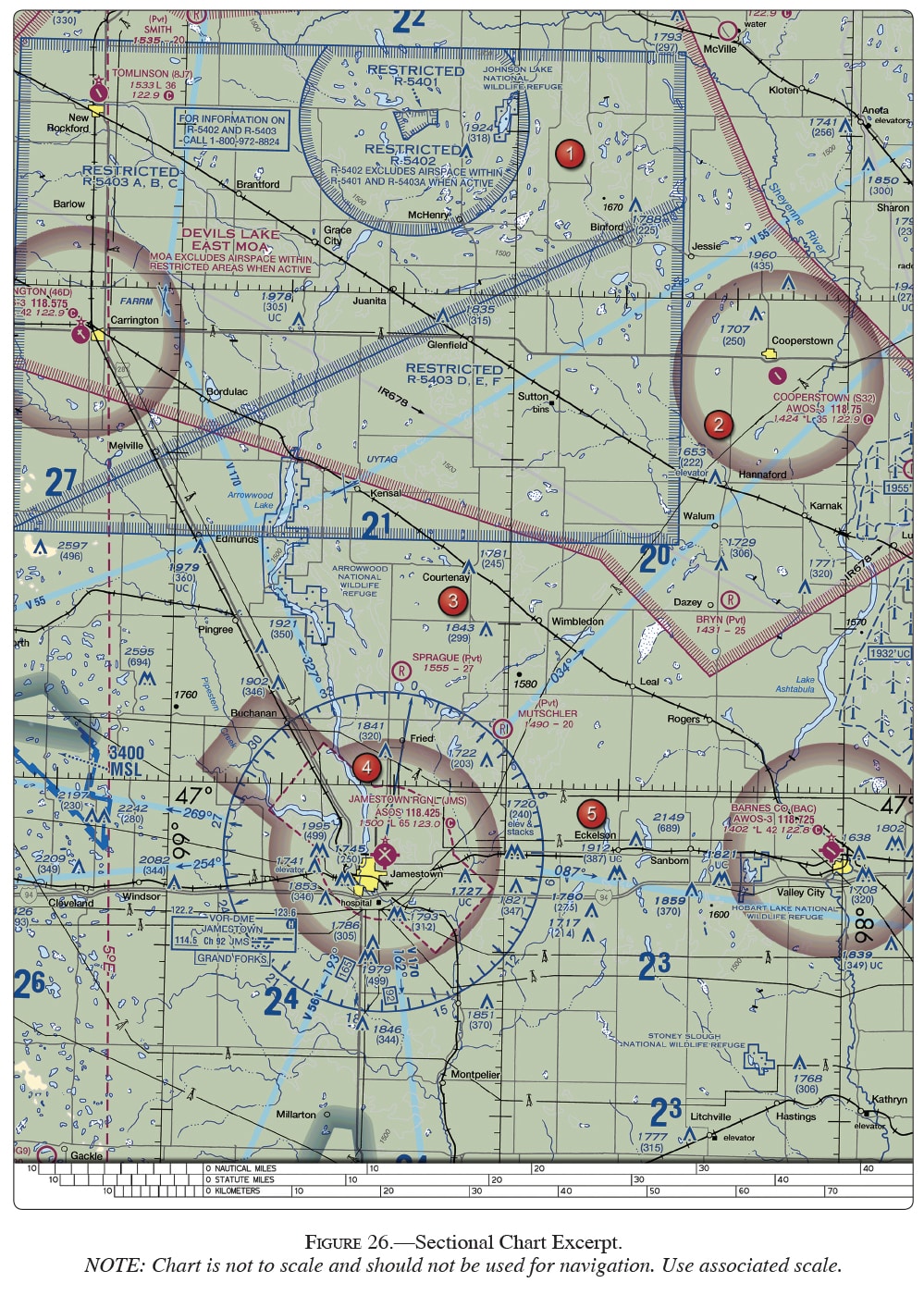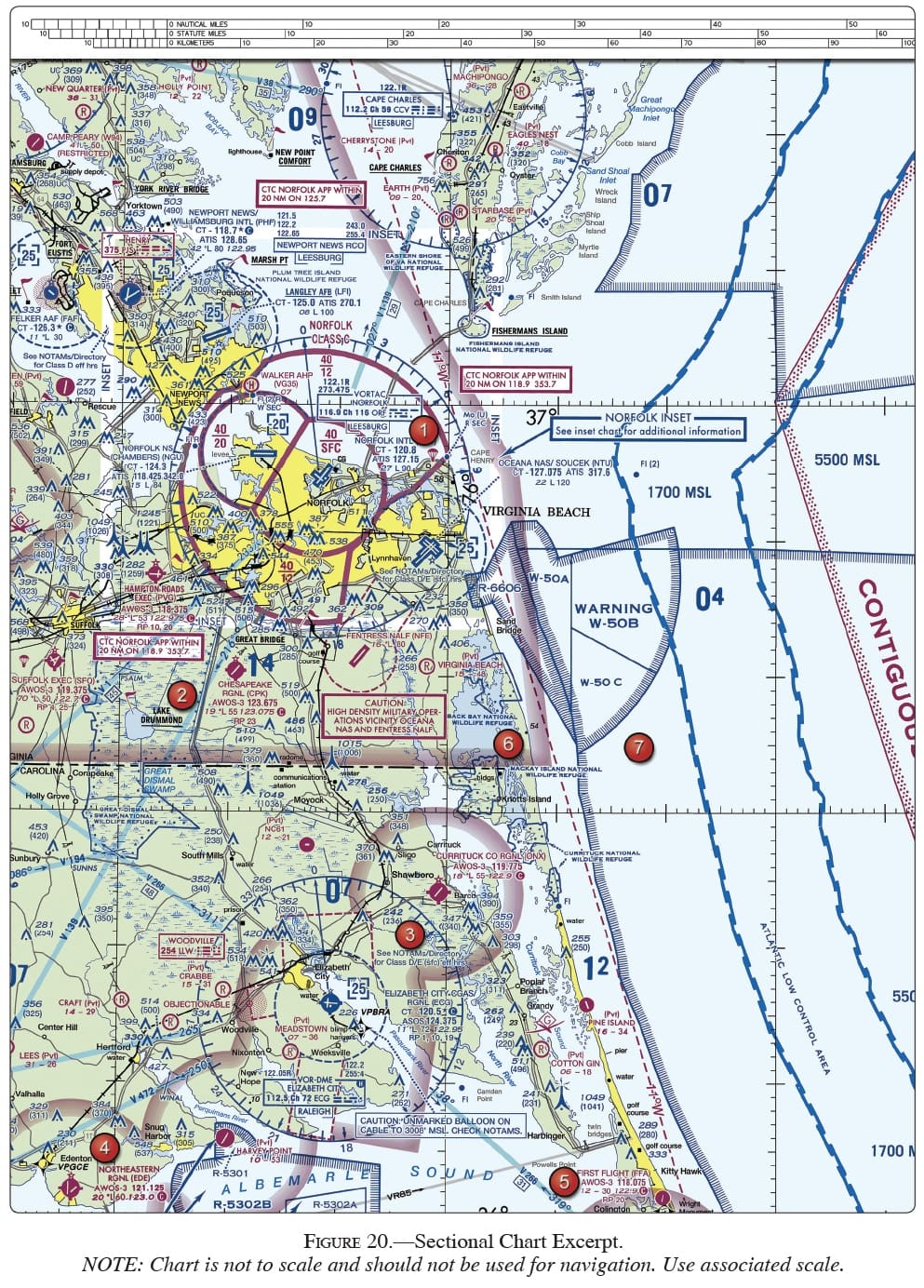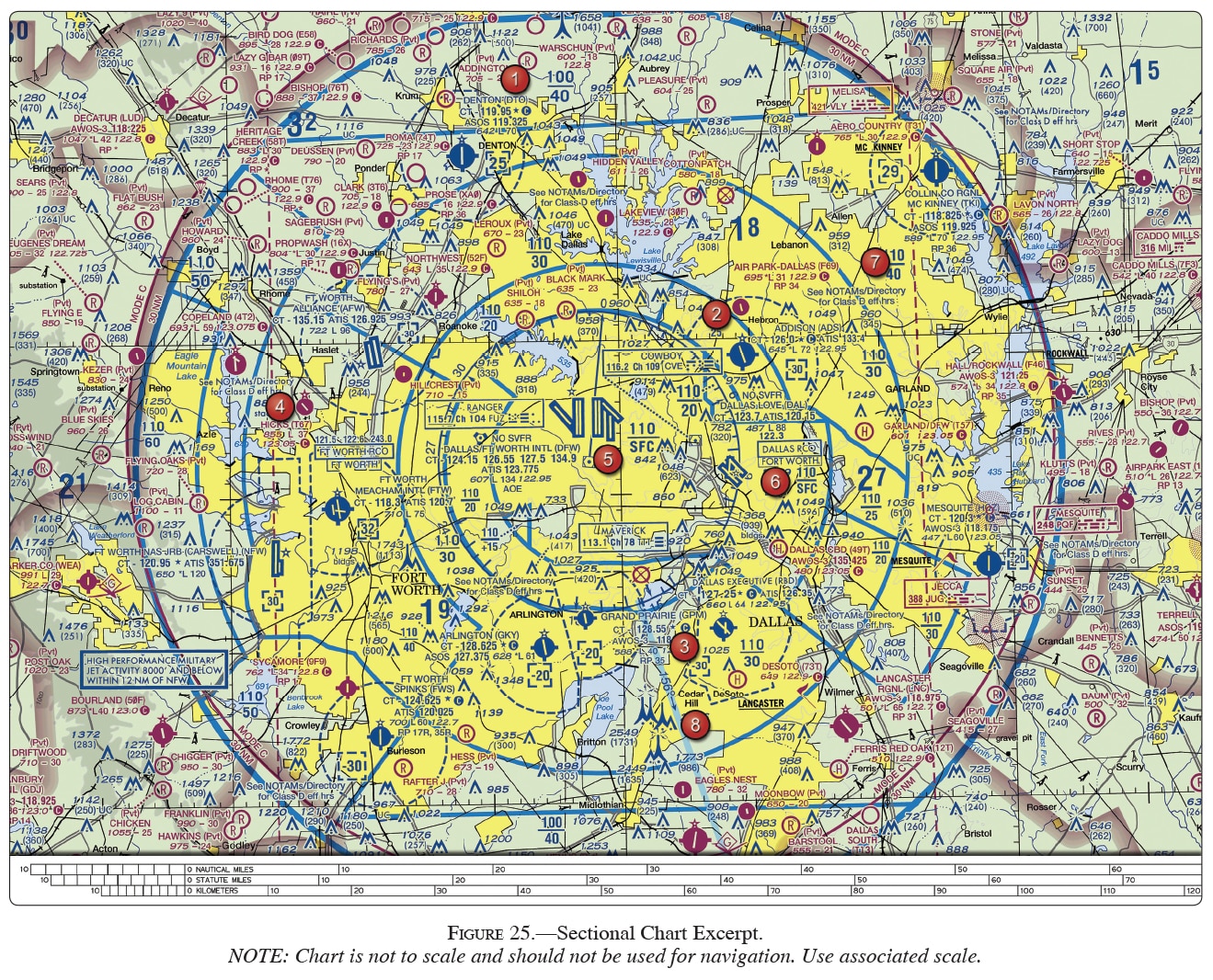FAA Airspace and Weather Minimums Test 2
(Refer to Figure 25, area 4.) The floor of Class B airspace overlying Hicks Airport (T67) north-northwest of Fort Worth Meacham Field is
Correct!
Wrong!
In which type of airspace are VFR flights prohibited?
Correct!
Wrong!
(Refer to Figure 26, area 2.) The day VFR visibility and cloud clearance requirements to operate over the town of Cooperstown, after departing and climbing out of the Cooperstown Airport at or below 700 feet AGL are

Correct!
Wrong!
(Refer to Figure 20, area 1.) What minimum radio equipment is required to land and take off at Norfolk International?

Correct!
Wrong!
Which initial action should a pilot take prior to entering Class C airspace?
Correct!
Wrong!
Advertisement
A special VFR clearance authorizes the pilot of an aircraft to operate VFR while within Class D airspace when the visibility is
Correct!
Wrong!
(Refer to Figure 22, area 1.) The visibility and cloud clearance requirements to operate over Sandpoint Airport at night at less than 700 feet AGL are

Correct!
Wrong!
The basic VFR minimum visibility at night for Class G, E, D, and C airspace below 10,000 feet MSL is 3 statute miles. An exception to that minimum is when below 1,200 feet above the surface and the visibility is at least 1 but less than 3 statute miles
Correct!
Wrong!
(Refer to Figure 25, area 4.) The airspace directly overlying Fort Worth Meacham is

Correct!
Wrong!
(Refer to Figure 26, area 5.) The airspace overlying and within 5 miles of Barnes County Airport is

Correct!
Wrong!
Advertisement
Under what condition may an aircraft operate from a satellite airport within Class C airspace?
Correct!
Wrong!
(Refer to Figure 22.) What are the visibility and cloud clearance requirements in an airplane at night when conducting takeoffs and landings at Shoshone County Airport (Area 3) if the pattern altitude is 1,000 feet AGL?

Correct!
Wrong!
The lateral dimensions of Class D airspace are based on
Correct!
Wrong!
With certain exceptions, all aircraft within 30 miles of a Class B primary airport from the surface upward to 10,000 feet MSL must be equipped with
Correct!
Wrong!
(Refer to Figure 20 area 4.) What hazards to aircraft may exist in restricted areas such as R-5302B?

Correct!
Wrong!
Advertisement
The minimum flight visibility required for VFR flights above 10,000 feet MSL and more than 1,200 feet AGL in controlled airspace is
Correct!
Wrong!
(Refer to Figure 26, area 3.) When flying over Arrowwood National Wildlife Refuge, a pilot should fly no lower than

Correct!
Wrong!
The vertical limit of Class C airspace above the primary airport is normally
Correct!
Wrong!
(Refer to Figure 26, area 1.) Identify the airspace over Tomlinson Airport (8J7).

Correct!
Wrong!
What minimum pilot certification is required for operation within Class B airspace?
Correct!
Wrong!
Advertisement
VFR flight in controlled airspace above 1,200 feet AGL and below 10,000 feet MSL requires a minimum visibility and vertical cloud clearance of
Correct!
Wrong!
What minimum pilot certification is required for operation within Class B airspace?
Correct!
Wrong!
Unless otherwise specified, Federal Airways include that Class E airspace extending upward from
Correct!
Wrong!
Pilots flying over a national wildlife refuge are requested to fly no lower than
Correct!
Wrong!
During operations outside controlled airspace at altitudes of more than 1,200 feet AGL, but less than 10,000 feet MSL, the minimum distance below clouds requirement for VFR flight at night is
Correct!
Wrong!
Advertisement
(Refer to Figure 26, area 2.) The visibility and cloud clearance requirements to operate VFR during daylight hours over the town of Cooperstown between 1,200 feet AGL and 10,000 feet MSL are

Correct!
Wrong!
What ATC facility should the pilot contact to receive a special VFR departure clearance in Class D airspace?
Correct!
Wrong!
You know when looking at a chart that the floor of Class E airspace is 700 feet AGL when it's within
Correct!
Wrong!
What minimum radio equipment is required for operation within Class C airspace?
Correct!
Wrong!
Responsibility for collision avoidance in an alert area rests with
Correct!
Wrong!